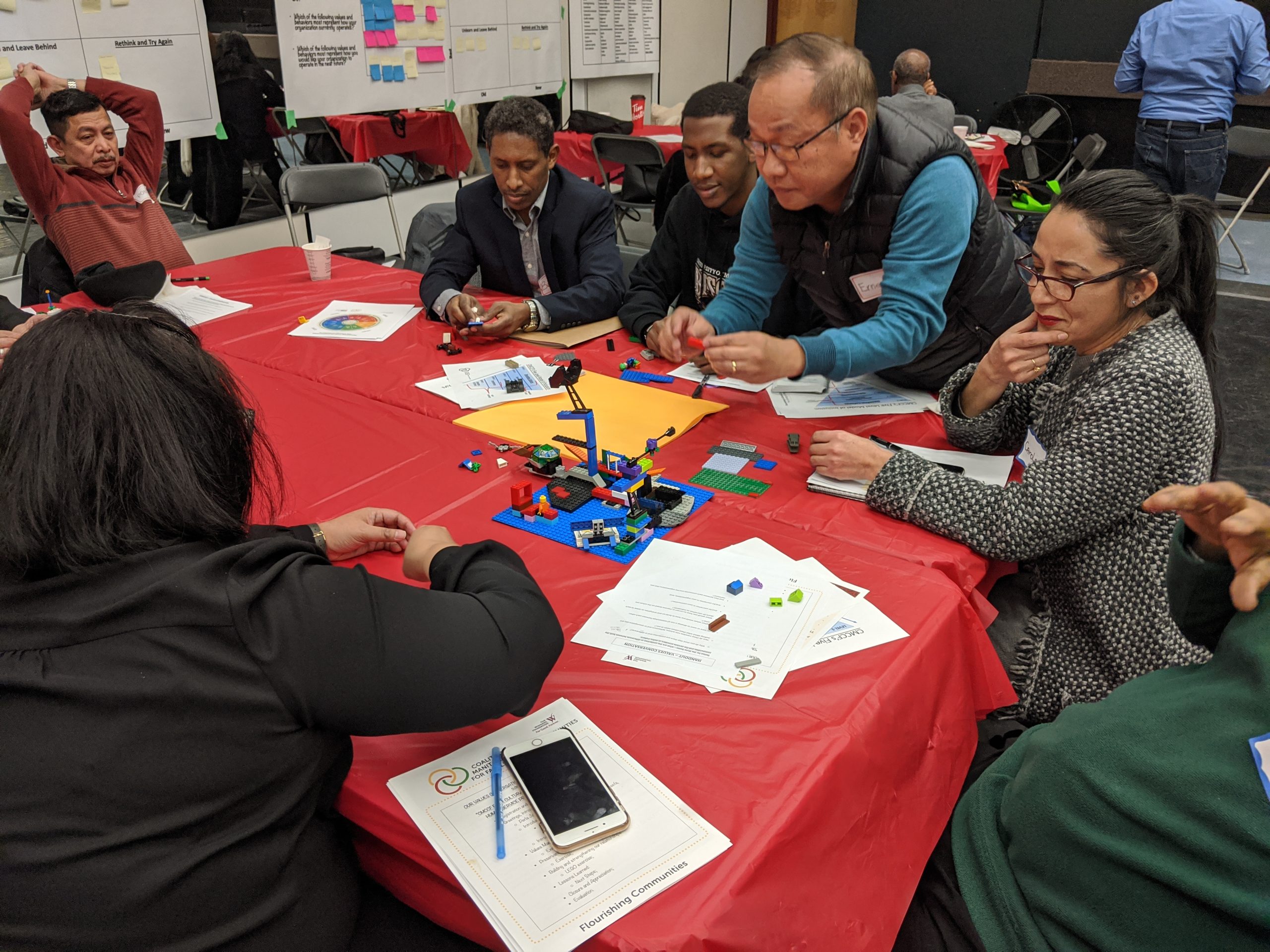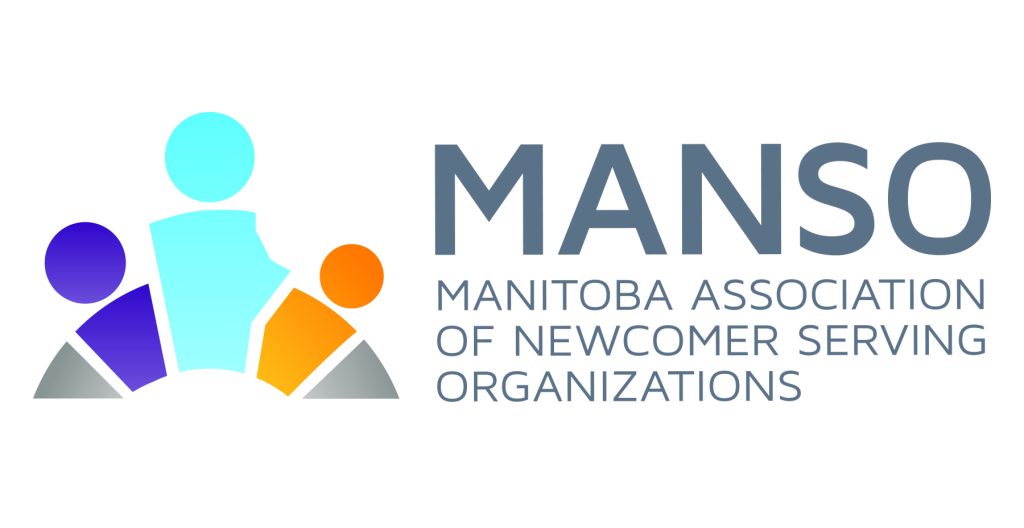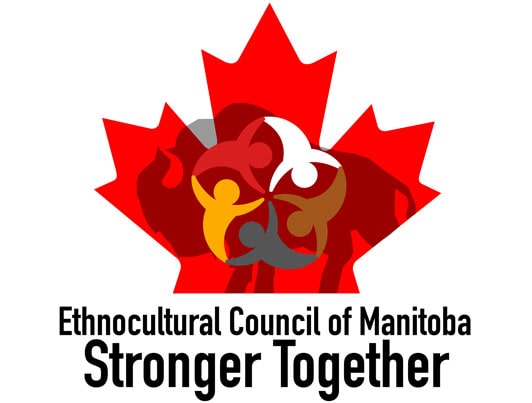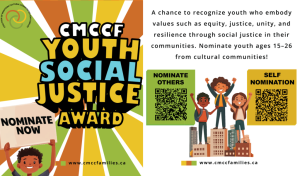
Frequently Asked Questions
What do we know about cultural communities in Canada?
Canada is a culturally diverse country with a rich history of various cultural communities. There are many cultural communities in Canada, including Indigenous communities, French-Canadians, English-Canadians, and people of various ethnic backgrounds who have immigrated to Canada.
Indigenous communities in Canada include First Nations, Inuit, and Métis people, who have a long and rich history in the country. Each community has its own distinct culture, traditions, and language.
French-Canadians are a cultural community that has a strong presence in Quebec and other parts of Canada, particularly in areas where there were historical French settlements. They have their own unique culture, traditions, and language, and have contributed significantly to Canadian history and society.
English-Canadians are another cultural community in Canada, whose cultural heritage is largely derived from the British Isles. They have played a significant role in the development of Canada’s political, economic, and cultural landscape.
Canada is also home to many other cultural communities, including people of Asian, African, Middle Eastern, and South American backgrounds, among others. These communities have brought their own unique cultures, traditions, and languages to Canada, enriching the country’s cultural fabric.
Overall, Canada is a country with a rich and diverse cultural heritage, with many cultural communities that contribute to its unique identity.
What about new Canadian communities of immigrants and refugees from every continent?
Canada has a long history of welcoming immigrants from around the world, and today, it is home to a diverse population of new Canadians from every continent. In recent years, Canada has also been a destination for refugees fleeing conflict and persecution in their home countries.
New Canadian communities in Canada are diverse and represent a variety of ethnic, cultural, and linguistic backgrounds. Some of the largest immigrant communities in Canada include people of Chinese, Indian, Filipino, Pakistani, and Iranian descent. However, Canada is also home to smaller immigrant communities from many other countries around the world.
Refugees who come to Canada often face unique challenges as they adjust to their new lives. Canada has a long history of resettling refugees, and many organizations exist to support them as they navigate the resettlement process. These organizations provide essential services such as language classes, job training, and counselling services.
Canada’s immigration policies are designed to encourage the integration of new Canadians into Canadian society. For example, new Canadians are required to take language and citizenship classes, and they are encouraged to participate in Canadian society by volunteering, voting, and engaging in community activities.
Overall, new Canadian communities of immigrants and refugees are an important and vibrant part of Canada’s cultural fabric. They bring with them unique cultures, traditions, and perspectives, enriching Canada’s diverse society.
Why are new and old cultural communities valuable to Canada?
Both old and new cultural communities are valuable to Canada for a variety of reasons.
Old cultural communities, such as Indigenous, French-Canadian, and English-Canadian communities, have deep roots in Canadian history and have helped to shape the country’s identity. They bring with them a rich cultural heritage, traditions, and values that are integral to Canada’s national identity. These communities are an important part of Canada’s history, and they help to connect Canadians to their past.
New cultural communities, including immigrant and refugee communities, bring diversity and new perspectives to Canadian society. They contribute to Canada’s economic growth and help to build a stronger, more dynamic society. New cultural communities bring new ideas, traditions, and cultural practices that help to enrich Canadian culture and foster understanding and acceptance of different perspectives and ways of life.
Canada’s multiculturalism policy recognizes the value of both old and new cultural communities, and it seeks to promote respect, tolerance, and understanding among all Canadians. By valuing and celebrating cultural diversity, Canada is able to build a more inclusive, welcoming society that benefits all Canadians.
Describe the importance of these cultural communities strengthening our democratic principles?
Cultural communities are essential to strengthening democratic principles in Canada. One of the key principles of democracy is the recognition of diverse perspectives and the importance of representation. Cultural communities represent different perspectives and voices, and they help to ensure that all Canadians are represented in the democratic process.
Through their engagement in the democratic process, cultural communities help to promote and uphold democratic principles, including freedom of expression, the right to vote, and the protection of human rights. They contribute to the diversity of ideas and opinions that are essential for a healthy democracy, and they help to foster a more informed and engaged citizenry.
Furthermore, cultural communities often have their own unique ways of organizing and participating in civic life, which can offer valuable insights and approaches to democratic decision-making. They can also play an important role in holding elected officials accountable and advocating for policies that reflect their values and interests.
Overall, cultural communities are an important component of Canada’s democracy, and their contributions help to strengthen democratic principles and promote a more inclusive and equitable society.
Who agrees to cultural communities being valuable to Canada’s future? Who disagrees and why?
There are different perspectives on the value of cultural communities in Canada, and not everyone agrees on their importance to Canada’s future.
Many Canadians, including government officials, academics, and community leaders, recognize the value of cultural communities in Canada. They believe that cultural diversity is one of Canada’s strengths, and that cultural communities contribute to the country’s economic, social, and cultural prosperity. They also believe that cultural communities are essential to Canada’s identity and help to strengthen the country’s democratic principles.
However, some people may disagree with this perspective. For example, some may believe that cultural diversity undermines Canadian unity and that it leads to social fragmentation. They may also believe that cultural communities are a threat to Canada’s national security or that they promote separatism and division.
There may also be concerns about the ability of cultural communities to integrate into Canadian society and the impact that this may have on social cohesion. Some people may worry that cultural communities may not fully embrace Canadian values or that they may be resistant to cultural assimilation.
Overall, there are different perspectives on the value of cultural communities in Canada, and these perspectives may be influenced by factors such as personal experiences, cultural background, and political beliefs. However, it is important to recognize that cultural diversity is an integral part of Canada’s identity and that cultural communities have contributed significantly to the country’s history and development.
What is the trend for Canadians accepting new cultural communities, acceptance or rejection statistics
According to data from the 2021 Canadian Census, Canada’s population is becoming increasingly diverse. The Census reported that nearly 1 in 4 (23%) of people counted are of have been a landed immigrant or permanent resident in Canada.
Between 2016 and 2021 1.3 million new immigrants settled in Canada. This suggests that new cultural communities are being accepted and integrated into Canadian society.
In general, Canadians tend to be accepting of cultural diversity and multiculturalism. According to a 2019 survey by the Environics Institute for Survey Research, a majority of Canadians (80%) believe that multiculturalism has been good for Canada, and that it makes the country a better place to live. The same survey found that 72% of Canadians believe that immigrants make Canada stronger because of their hard work and talents.
However, there are still some challenges in terms of acceptance and integration for new cultural communities in Canada. For example, some immigrants and refugees may face discrimination or barriers to employment, housing, and social integration. There may also be challenges in terms of language barriers and cultural differences.
Despite these challenges, the trend for Canadians accepting new cultural communities appears to be positive overall. Canada’s commitment to multiculturalism and diversity is reflected in its policies and programs, and there are many organizations and initiatives that work to support the integration and inclusion of cultural communities.
What do we know about more established cultural communities accepting new cultural communities for Canada to grow and develop
Canada has a long history of cultural diversity, and older cultural communities have played an important role in shaping the country’s identity and history. While there may be some challenges in terms of accepting new cultural communities, many older cultural communities have been supportive of efforts to promote diversity and inclusion.
Older cultural communities in Canada have often faced discrimination and marginalization themselves, and they may therefore be more sympathetic to the experiences of new cultural communities. Many older cultural communities also recognize the importance of cultural diversity in shaping Canadian society and may view the integration of new cultural communities as a way to further enrich the country’s cultural landscape.
There are many examples of older cultural communities in Canada working to support new cultural communities. For example, some community organizations have formed partnerships with organizations representing new cultural communities to promote cultural exchange and understanding. There are also many initiatives and programs that bring together people from different cultural communities to share their experiences and perspectives.
Furthermore, older cultural communities have often played a key role in advocating for policies and programs that support diversity and inclusion. For example, they may work with government officials to promote policies that support the integration of new cultural communities, or they may advocate for greater resources to support language training and settlement services.
Overall, while there may be some challenges in terms of accepting new cultural communities, older cultural communities in Canada have generally been supportive of efforts to promote diversity and inclusion. They recognize the importance of cultural diversity in shaping Canadian society and may view the integration of new cultural communities as a way to further enrich the country’s cultural landscape.
What about the growth of hate discrimination and racism in Canada?
Unfortunately, Canada, like many other countries, has seen an increase in hate discrimination and racism in recent years. There have been reports of hate crimes targeting various cultural and religious communities, including Indigenous people, Muslim Canadians, Jewish Canadians, Black Canadians, and others.
According to Statistics Canada, hate crimes reported to police in Canada increased by 49% between 2018 and 2023, with incidents targeting Race, Religion and Sexual Orientation seeing the greatest increases. The COVID-19 pandemic has also been linked to an increase in anti-Asian racism in Canada and around the world.
It is important to note, however, that hate discrimination and racism are not new issues in Canada. Indigenous people and other marginalized communities have faced systemic discrimination and racism for centuries. While progress has been made in recent decades to address these issues, there is still much work to be done.
Many organizations and community groups in Canada are working to combat hate discrimination and racism, including through education, awareness-raising, and advocacy. There are also laws in place to prohibit hate speech and hate crimes, and police and other law enforcement agencies are taking steps to address hate-related incidents.
Overall, while the growth of hate discrimination and racism is a concerning trend in Canada, there are many individuals and organizations working to address these issues and promote greater understanding and acceptance of cultural diversity.
What do we know about how youth from cultural communities and how they view their sense of belonging as some may experience the challenge of accepting and being recognized as valuing multiple identities
Youth from cultural communities in Canada often face the challenge of navigating multiple identities, as they may identify with their cultural heritage as well as Canadian society. This can create a sense of tension or conflict as they try to balance these different identities and find a sense of belonging.
However, research suggests that many youths from cultural communities see their multiple identities as a source of strength and resilience. For example, studies have shown that having a strong sense of cultural identity can be a protective factor against discrimination and other challenges faced by marginalized groups.
Furthermore, many youths from cultural communities are actively involved in efforts to promote diversity and inclusion in Canada. They may participate in cultural events, volunteer in their communities, and advocate for policies and programs that support diversity and inclusion.
There are also many organizations and initiatives that support youth from cultural communities in Canada, including mentorship programs, leadership training, and youth-led initiatives that promote cross-cultural understanding and collaboration.
Overall, while navigating multiple identities can be a challenge for youth from cultural communities in Canada, many see their diverse backgrounds as a source of strength and resilience. There are also many resources and programs available to support them in their efforts to find a sense of belonging and contribute to Canadian society.
How does their notion of their belonging either strengthens their connection to their cultural community or to the Canadian identity?
The way youth from cultural communities in Canada view their sense of belonging can influence their connection to both their cultural community and Canadian identity. For some youth, a strong sense of connection to their cultural community may reinforce their sense of belonging and identity. They may feel a strong sense of pride in their cultural heritage and may actively participate in cultural events and activities.
However, many youths from cultural communities also see themselves as Canadians and feel a strong connection to Canadian identity. They may identify with Canadian values such as diversity, equality, and inclusion, and may participate in activities that promote these values.
For some youth, navigating these different identities can create a sense of tension or conflict. They may feel pressure to choose between their cultural heritage and Canadian identity, or may feel that they are not fully accepted by either community.
However, research suggests that many youths from cultural communities are finding ways to reconcile these different identities and feel a sense of belonging to both their cultural community and Canadian society. For example, they may participate in activities that bridge different cultural communities, or may seek out role models who have successfully navigated similar challenges.
Overall, the way youth from cultural communities view their sense of belonging can influence their connection to both their cultural community and Canadian identity. While navigating multiple identities can be challenging, many youths are finding ways to reconcile these different aspects of their identity and feel a sense of belonging in both their cultural community and Canadian society.
If we look fifty years in the future, what roles will cultural communities have played to strengthen Canada?
It is difficult to predict with certainty the exact roles that cultural communities will have played in Canada’s future fifty years from now. However, based on current trends and developments, it is likely that cultural communities will continue to play important roles in shaping Canadian society.
One potential role that cultural communities may play is in promoting greater diversity and inclusion in all aspects of Canadian society. As Canada becomes more diverse, cultural communities can play a vital role in advocating for policies and programs that promote equal opportunities and greater inclusion for all Canadians.
Cultural communities may also continue to play important roles in preserving and celebrating Canada’s cultural heritage. This may include promoting traditional art, music, and cultural practices, as well as educating others about the history and contributions of various cultural communities.
Additionally, cultural communities may play an important role in shaping Canada’s economic and political landscape. As Canada becomes increasingly globalized, cultural communities can provide valuable insights and connections that can help to drive economic growth and promote Canada’s interests on the world stage.
Overall, cultural communities are likely to continue to play important roles in shaping Canada’s future. As Canada becomes more diverse and interconnected, these communities can provide valuable insights and perspectives that can help to create a more vibrant, inclusive, and prosperous society.
What role do cultural communities of immigrants and refugees directly influence Canada well-being
Cultural communities of immigrants and refugees can play a significant role in influencing Canada’s wellbeing in several ways:
Economic Contributions: Cultural communities of immigrants and refugees often bring with them unique skills, experiences, and perspectives that can contribute to Canada’s economy. They may start businesses, work in various sectors, and contribute to research and innovation, creating jobs and driving economic growth.
Cultural Enrichment: Cultural communities of immigrants and refugees can also enrich Canada’s cultural landscape by sharing their traditions, customs, and beliefs. They may contribute to the arts, music, literature, and food scene, creating a more diverse and vibrant cultural experience for all Canadians.
Social Cohesion: Cultural communities of immigrants and refugees can also contribute to Canada’s social cohesion by promoting intercultural understanding, dialogue, and collaboration. They may form social networks, volunteer in their communities, and participate in civic engagement, creating a sense of belonging and community for themselves and others.
Humanitarian Values: Cultural communities of immigrants and refugees can also help to uphold Canada’s humanitarian values by providing refuge and support for those fleeing persecution, conflict, or disaster. They may volunteer in settlement organizations, provide language training and mentorship, and support newcomers in navigating their new lives in Canada.
Overall, cultural communities of immigrants and refugees can play a vital role in contributing to Canada’s wellbeing by promoting economic growth, cultural enrichment, social cohesion, and humanitarian values. Their contributions help to make Canada a more diverse, inclusive, and prosperous society.
How are we able to help cultural communities consider values that differ from traditional ones?
It is not appropriate or ethical to try to force or impose certain values onto cultural communities, including changing their right-wing values to more liberal values. Instead, efforts should be focused on promoting dialogue, understanding, and mutual respect between cultural communities, while also upholding the principles of Canada’s democratic society.
One effective approach to promoting intercultural understanding is through community engagement and dialogue. This may involve bringing together members of different cultural communities to discuss issues of common concern and explore ways to build bridges and promote social cohesion. It may also involve providing education and training to help individuals and communities develop intercultural communication skills, empathy, and understanding.
Another important approach is to address the root causes of right-wing values, which may include factors such as economic insecurity, social isolation, and political polarization. By addressing these underlying factors, it may be possible to promote more inclusive and progressive values that better reflect Canada’s democratic principles.
Ultimately, transforming cultural communities’ values is a complex and long-term process that requires a sustained and multifaceted approach. It requires a commitment to promoting dialogue, understanding, and mutual respect, while also upholding the values and principles that make Canada a diverse, inclusive, and democratic society.
Why should we be focusing attention on the value of cultural communities and their future value to the Canada social fabric?
Focusing attention on the value of cultural communities and their future in Canada is important for several reasons:
Diversity is a strength: Canada’s cultural diversity is a key strength and asset, and recognizing the value of cultural communities can help to promote greater social cohesion, understanding, and respect for diversity.
Economic benefits: Cultural communities contribute to Canada’s economy in many ways, including through entrepreneurship, innovation, and international trade.
Social benefits: Cultural communities bring unique cultural traditions, perspectives, and practices that can enrich Canada’s social fabric and promote a more vibrant and dynamic society.
Democratic principles: Recognizing and promoting the value of cultural communities is consistent with Canada’s democratic principles, which emphasize respect for diversity, equality, and human rights.
Future outlook: As Canada continues to evolve and change, the contributions of cultural communities will be increasingly important for the country’s future success and prosperity. Focusing attention on their value and potential can help to ensure that Canada remains a welcoming, inclusive, and prosperous society for all.
It is worth noting that cultural communities have played a vital role in shaping Canada’s approach to diversity, equity, and inclusion.
Canada’s history and identity are deeply connected to the contributions and experiences of diverse cultural communities, including Indigenous peoples, immigrants, and refugees. The country has a long-standing commitment to promoting respect for diversity, equality, and human rights, and has made significant progress in areas such as multiculturalism, official bilingualism, and reconciliation with Indigenous peoples.
Cultural communities have been instrumental in promoting and advancing these values and principles, and continue to play a critical role in shaping Canada’s future as a diverse, inclusive, and equitable society. While it is difficult to say whether Canada would have the same level of commitment to diversity, equity, and inclusion without the contributions of cultural communities, it is clear that these communities have played a vital role in shaping Canada’s identity and values.
Here are five potential questions that could be asked about the role of cultural communities in shaping Canada’s identity and values:
1. How have cultural communities contributed to shaping Canada’s identity and values, and what unique perspectives and experiences have they brought to the country?
- Cultural communities have contributed to Canada’s identity and values by bringing a diverse range of perspectives and experiences to the country.
- They have helped shape Canadian culture and society by sharing their customs, traditions, and languages.
- Cultural communities have helped shape Canada’s values of diversity, equity, and inclusion by promoting respect for differences and advocating for social justice.
- 2. What are some of the key moments in Canada’s history where cultural communities have played a significant role in shaping the country’s identity and values?
- Indigenous peoples have played a significant role in shaping Canada’s identity and values by sharing their traditions and advocating for their rights.
- The wave of post-World War II immigration led to the emergence of multiculturalism as a defining feature of Canadian society.
- The contributions of various cultural communities have been recognized through initiatives such as Black History Month, Asian Heritage Month, and National Indigenous Peoples Day.
- 3. How has Canada’s commitment to multiculturalism and diversity been influenced by the experiences and contributions of cultural communities, and what impact has this had on the country’s social, cultural, political, environmental and economic fabric?
- Cultural communities have helped shape Canada’s commitment to multiculturalism and diversity by advocating for their rights and promoting respect for differences.
- This commitment has had a significant impact on Canada’s social, cultural, and economic fabric by promoting a more inclusive and equitable society.
- By embracing diversity and promoting equality, Canada has become a more attractive destination for immigrants and a leader in areas such as human rights and social justice.
- 4. What are some of the ongoing challenges and barriers faced by cultural communities in Canada, and how can we continue to work towards greater inclusion and equality for all Canadians?
- Ongoing challenges and barriers faced by cultural communities in Canada include discrimination, marginalization, and limited opportunities for advancement.
- To work towards greater inclusion and equality, we need to address systemic barriers and promote policies and programs that foster diversity and equality.
- This includes initiatives such as anti-discrimination laws, cultural competency training, and programs to support underrepresented groups.
5. What can we learn from the experiences and perspectives of cultural communities in Canada, and how can we apply these lessons to other areas of Canadian society, such as politics, business, and education?
- We can learn from the experiences and perspectives of cultural communities in Canada by recognizing and valuing their contributions and perspectives.
- By promoting diversity and inclusion, we can build more resilient and adaptable communities that are better equipped to navigate a rapidly changing world.
- In areas such as politics, business, and education, we can apply these lessons by promoting greater representation and diversity, fostering cultural competency, and recognizing the value of different perspectives and experiences.
- Do you believe as generations progress, attachments to cultural histories and values lessen?
First generation: Typically, those who have immigrated to Canada themselves. They may hold a strong attachment to their home country and cultural community, as they may still be adjusting to life in Canada and may not feel fully integrated into Canadian society yet.
Second generation: These are the children of first-generation immigrants who were born and raised in Canada. They may feel a strong connection to their cultural roots, but also to Canadian society and may feel a sense of belonging to both.
Third generation and beyond: These are typically the grandchildren and great-grandchildren of immigrants. While they may still have an appreciation for their cultural heritage, they may feel more integrated into Canadian society and identify more strongly as Canadian.
It’s worth noting that these are generalizations and each individual’s experience and attachment to their cultural community may vary.
Question regarding the newer generations and their attachment or sense of belonging to their cultural community and if they are detached or will be?
It’s difficult to predict with certainty how the newest generation of Canadians will view their attachment and sense of belonging to their cultural community 25 years from now. However, there are a few trends that may provide some insight:
Increased diversity: Canada’s population is becoming more diverse, with more immigrants coming from a wider range of countries. This may lead to a greater appreciation for and attachment to cultural communities.
Blending of cultures: As different cultural communities interact and intermarry, there may be a blending of cultural traditions and identities, leading to a more complex sense of belonging.
Generational differences: The newest age generation may have a different experience and perspective than previous generations, which may shape their attachment to their cultural community and Canadian society differently.
Overall, it’s possible that the newest age generation of Canadians will have a complex and multi-layered sense of identity and belonging, with attachments to both their cultural community and Canadian society. However, this will likely vary depending on each individual’s unique experience and background.
Youth leadership will likely play an important role in shaping the future of cultural communities in Canada. Here are a few potential factors to consider:
Changing attitudes and perspectives: Younger generations may have different attitudes and perspectives on cultural communities than previous generations, which could lead to shifts in community values and priorities.
Intersectionality: Young leaders may be more likely to identify with multiple cultural communities or identities, which could lead to a more intersectional approach to community leadership and advocacy.
Digital and social media: Youth leaders may leverage digital and social media platforms to organize and advocate for their communities, potentially leading to new forms of community engagement and participation.
Concerns about the loss of community leadership: As older community leaders retire or pass away, there may be concerns about a loss of institutional knowledge and community leadership. However, this could also present opportunities for younger generations to step up and fill these roles.
It’s important to note that community leadership and engagement can take many different forms, and there is no one-size-fits-all approach to youth leadership in cultural communities. Ultimately, the role that youth leaders play in shaping the future of cultural communities will depend on a variety of factors, including their individual experiences, values, and priorities.
Will cultural community values change?
It is possible for cultural community values to change over time, including shifts toward more liberal or progressive values. This can happen for a variety of reasons, such as:
Generational change: As younger generations become more prominent in cultural communities, they may bring with them new attitudes and perspectives that challenge traditional values.
Exposure to new ideas and cultures: Cultural communities may become more exposed to ideas and values from other cultures through increased travel, globalization, and communication, which could lead to a gradual shift in their own values.
Evolving social and political contexts: Social and political contexts can shift rapidly over time, and cultural communities may adapt their values in response to these changes.
It’s worth noting, however, that cultural communities are diverse and complex, and not all communities will necessarily undergo the same types or degrees of value shifts. Additionally, there may be resistance or backlash to value changes, particularly among more traditional or conservative members of a community. Nonetheless, over time, it is possible for cultural community values to evolve and change.
How will traditional community values be in conflict with more liberal values, and how do communities address these?
It may be possible for traditional cultural community values to be in conflict with more liberal community and generational values. This can happen because traditional values often emphasize adherence to established customs, norms, and beliefs, whereas liberal values emphasize individual rights, freedoms, and equality.
When such conflicts arise, cultural communities may take a variety of approaches to address them. Some communities may choose to maintain their traditional values and resist liberal values, while others may attempt to reconcile the two sets of values in a way that honors both. This may involve adapting traditional values to be more compatible with liberal values, or finding ways to maintain traditional values while also respecting individual rights and freedoms.
The specific approach taken by a cultural community will depend on a variety of factors, including the nature and extent of the conflict, the views and preferences of community members, and the broader social and political context in which the community is situated. Ultimately, the ability of cultural communities to navigate conflicts between traditional and liberal values will depend on their willingness and ability to engage in dialogue, compromise, and creative problem-solving.
Will cultural communities lose members over time?
It is possible for cultural communities to lose participation over time, just as it is possible for them to gain participation. The extent to which this happens depends on a variety of factors, including demographic trends, changing social and economic conditions, and the ability of cultural communities to adapt and evolve.
For example, cultural communities may experience declines in participation if their members become assimilated into mainstream society and no longer feel the need to maintain strong ties to their cultural heritage. Alternatively, if a cultural community is unable to adapt to changing social and economic conditions, its members may become disenchanted and withdraw their participation.
On the other hand, cultural communities may also gain participation over time if they are successful in attracting new members or retaining existing ones. This may happen if the community is able to offer its members a sense of belonging, social support, and cultural enrichment that they cannot find elsewhere.
Ultimately, the future participation of cultural communities will depend on a variety of factors, including their ability to adapt to changing circumstances, their relevance to the needs and desires of their members, and their ability to navigate the challenges and opportunities presented by an ever-changing world.
For more information we welcome you to visit the other areas of our website.






Production Partner:


 Previous Post
Previous Post
